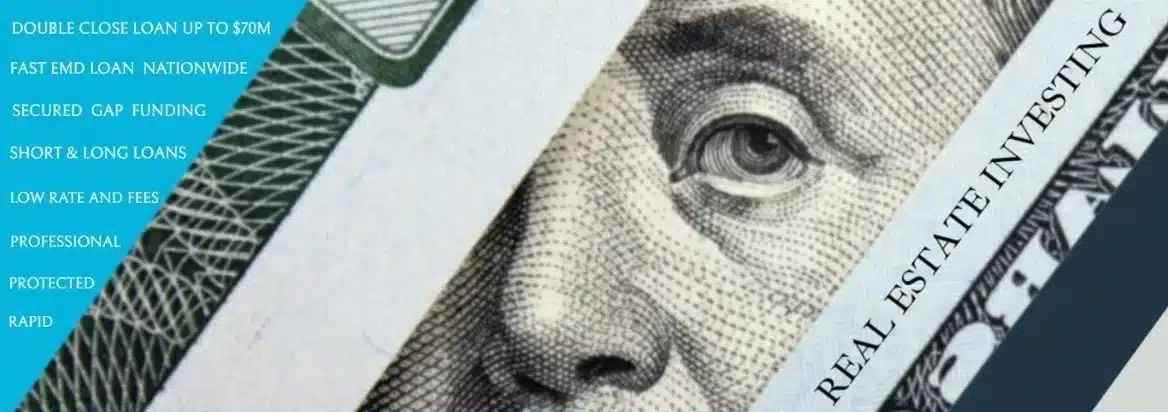Taking on your first wholesale deal can feel like walking a tightrope—exciting, but filled with uncertainty. If you’re unsure about how to close both ends of the deal without fronting your own money or if you’re hearing terms like escrow and transactional funding for the first time, you’re not alone.
Many first-time wholesalers ask:
- What happens if my buyer pulls out?
- How do I legally and financially close both deals on the same day?
- Do I need to use my own funds upfront?
This guide will walk you through the mechanics of double close funding, how to time your closings, and what to watch out for—so you’re ready to execute a seamless wholesale transaction.
What Is Double Closing and Why It’s Gaining Traction
In double closing in real estate, you make two transactions almost simultaneously. You first purchase the property from the seller (A-B deal), then immediately sell it to your end buyer (B-C deal). This approach is ideal when buyers are uncomfortable with assignments or when you want to keep your profit private.
But how do you fund that first purchase without using your own cash? That’s where double close funding comes in—it temporarily covers the A-B transaction until your buyer’s funds come through.
The Flow of a Double Close: From Start to Profit
To help you visualize how the process works, here’s a table that breaks down each stage of the transaction—from contract to close—and shows how each piece connects:
| Stage | What Happens | Why It Matters |
| Deal Sourcing | You find a motivated seller and negotiate a purchase price | This sets the foundation—your profit depends on the spread |
| Buyer Identification | You secure a buyer at a higher price | Your exit strategy—this buyer brings in the funds to close |
| Contract Execution | A-B and B-C agreements are signed | Legal documentation is key to initiating the process |
| Proof of Funds Secured | A lender provides a POF letter for the A-B deal | Gives the seller confidence you can close |
| Escrow Coordination | Title company manages funds, paperwork, and closing order | Ensures both deals are timed and executed properly |
| Funding the A-B Deal | Double close funding covers the initial purchase | Allows you to buy without using personal capital |
| Buyer Closes B-C Deal | Buyer’s funds pay off the loan and close the second transaction | You get paid the difference after repaying the lender |
5 Steps to Closing Without Using Your Own Funds
Here’s how to move through the process:
Step 1: Lock In the Seller Deal
Negotiate terms and sign a purchase contract with the seller. This is your A-B deal.
Step 2: Get Your Buyer Lined Up
Find a reliable buyer willing to purchase at a higher price. This is your B-C deal—and your payday.
Step 3: Arrange for Transactional Funding
Connect with a lender who specializes in double close funding. They’ll provide the money to temporarily fund your A-B closing.
Step 4: Coordinate Both Closings Through Escrow
Work with a title or escrow company to time both deals back-to-back. This minimizes delays and legal complications.
Step 5: Close the Deal and Collect Your Spread
Once your buyer funds the second deal, your lender is repaid, and you keep the difference as profit.
Avoid These Rookie Mistakes
- Unvetted Buyers
Make sure your buyer is legit, serious, and financially ready. One flaky buyer can crash the deal. - Not Accounting for Fees
Don’t forget title costs, lender fees, and closing charges. These can add up and shrink your profit. - Misaligned Timelines
If one side of the deal isn’t ready, the other can fall apart. Ensure both parties are in sync before scheduling closings.
Why Every Minute Counts in a Double Close
The space between the two closings—often just a few hours—can make or break the deal. Any delays in escrow, wiring, or paperwork can cause a domino effect. That’s why your partner in double close funding must be responsive, precise, and experienced.
Is This the Right Strategy for You?
If you’re asking:
- What if my seller doesn’t like assignments?
- What if I don’t want to disclose my profit?
- What if I need quick capital without using my credit?
Then yes—double close funding is a smart, strategic path to close your first wholesale deal.
You’re Closer Than You Think
With a strong funding partner, a solid timeline, and clear communication, you can complete your first deal without risking your own cash. You now understand the flow, the terms, and the steps—so all that’s left is action.
Ready to fund and close your next wholesale deal the right way?
Get in touch with a transactional lender who knows how to move fast—and help you win.









